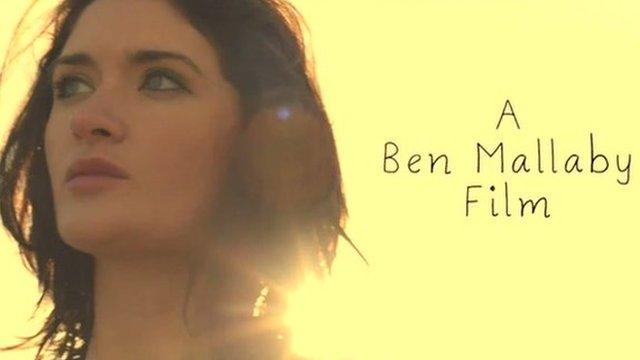One man's year in a Cornish field
- Published
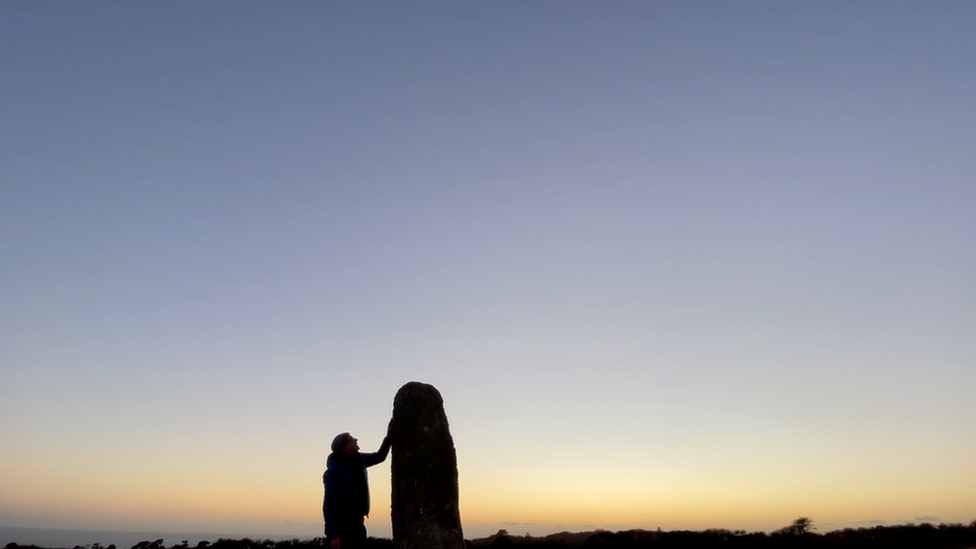
Christopher Morris spent a year filming a stone in a field
Filmmaker Christopher Morris first saw the standing stone while on a walk through his favourite barley fields near his home in West Cornwall.
In the weeks and months that followed, he started to take pictures of it.
Then, armed with what he described as a rickety tripod, camera and zero budget, he began filming.
Over the next 12 months, and during 270 trips to the site near Penzance, it slowly evolved into A Year in a Field - a documentary film about climate change.
It also, he said, became a love letter to Cornwall and its wildlife, from the lichen that covers Boscawen-Ros standing stone at the field's centre to its humble slugs, nocturnal badgers and swooping birds of prey.
"I'd slip out of bed without waking my wife, and then go and film for four hours and realise I'd missed breakfast," the 60-year-old said.
"It became an obsession."
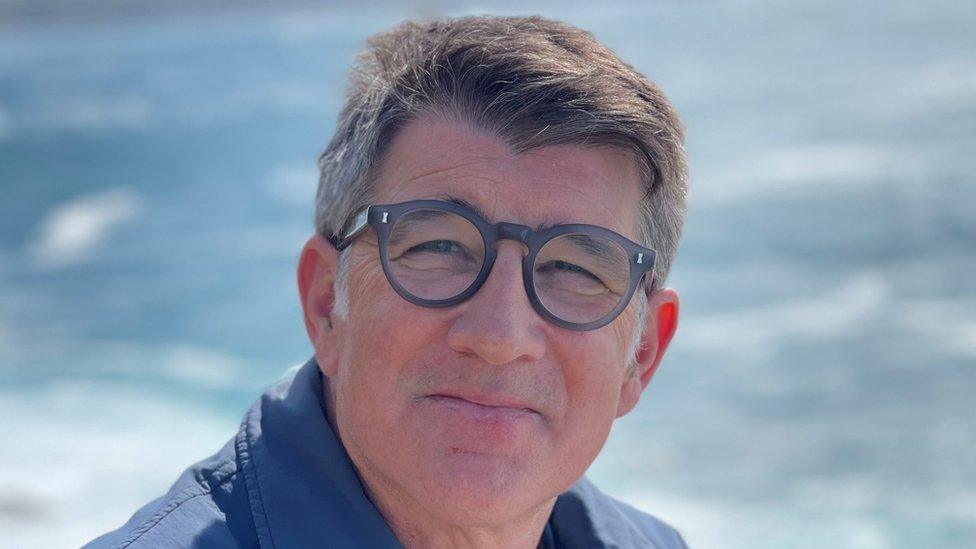
Christopher Morris said had not set out to make a film about climate change
Mr Morris said he had been inspired by a book he had bought from a junk shop a decade earlier.
A Year in the Life of a Field was written by Michael Allaby, an ecologist who recorded his time in a field near Bodmin Moor in 1981.
"With no other intention than to kind of repeat his experiment, that's what I set out to do," Mr Morris said.
"I had a very simple camera, an amateur recording device and a rickety tripod that couldn't pan or tilt."
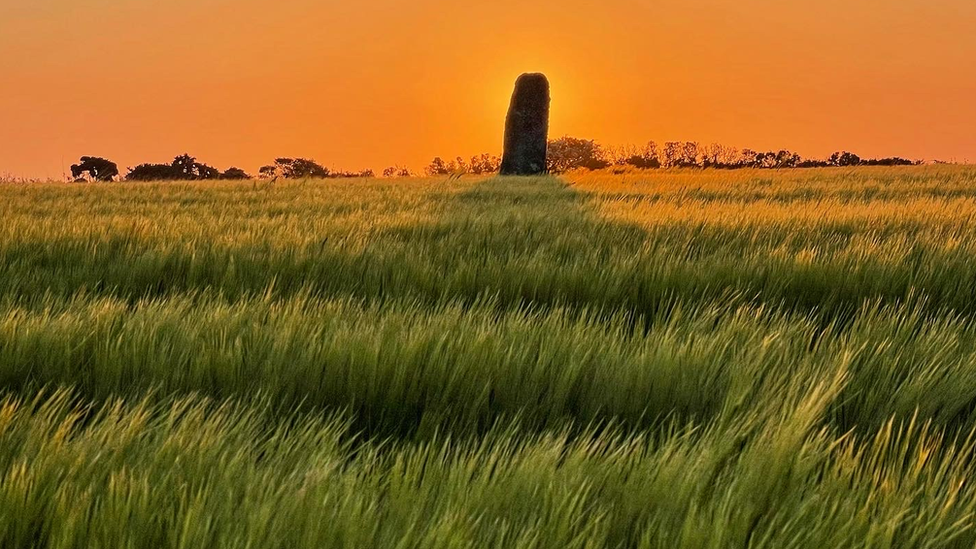
Mr Morris visited the field throughout the year, no matter the weather
At first, it was not a project about climate change, Mr Morris admitted.
"But when you spend hours and hours and hours standing in a field on your own, you begin to think about the place you are standing in in a different way," he added.
"The amount of rubbish that blew in, and I filmed all the rubbish and all the detritus of our lives that blew into the field.
"It became blindingly obvious to me, simply standing in a field.
"The simpler we live our lives, the better."
Mr Morris said he sought views from experts on wildlife, stones and history in Cornwall and their input features in the film's commentary.
But never did he expect a "lo-fi, low impact" film, which began on retirement from his managerial post at Falmouth University's film school, to capture imaginations.
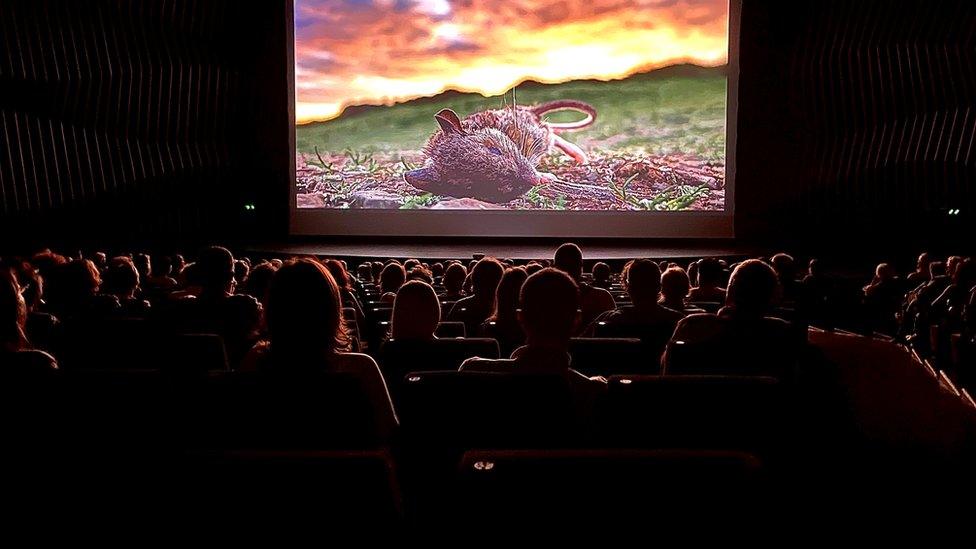
The film was shown last week at a film festival in Serbia
It was produced by Bosena, the production house behind Mark Jenkin's Enys Men, in partnership with Stone Club and Falmouth University.
Speaking to the BBC from the Magnificent 7 festival in Serbia, the BAFTA-winning documentarian said: "It's a sort of mounting level of increasing surprises.
"And we're going to Zurich in a few weeks and it's being picked up in America, it's beyond my wildest expectations of what I thought would happen."
The film is also about to go on a tour around Britain, including showings at Cornwall's Newlyn Filmhouse on Thursday, Exeter, Penzance and Truro.
This unexpected success hails from humble beginnings, Mr Morris said.
"I'm just an ordinary person who just stood in a field."

Follow BBC News South West on Twitter, external, Facebook, external and Instagram, external. Send your story ideas to spotlight@bbc.co.uk.
- Published29 January 2023
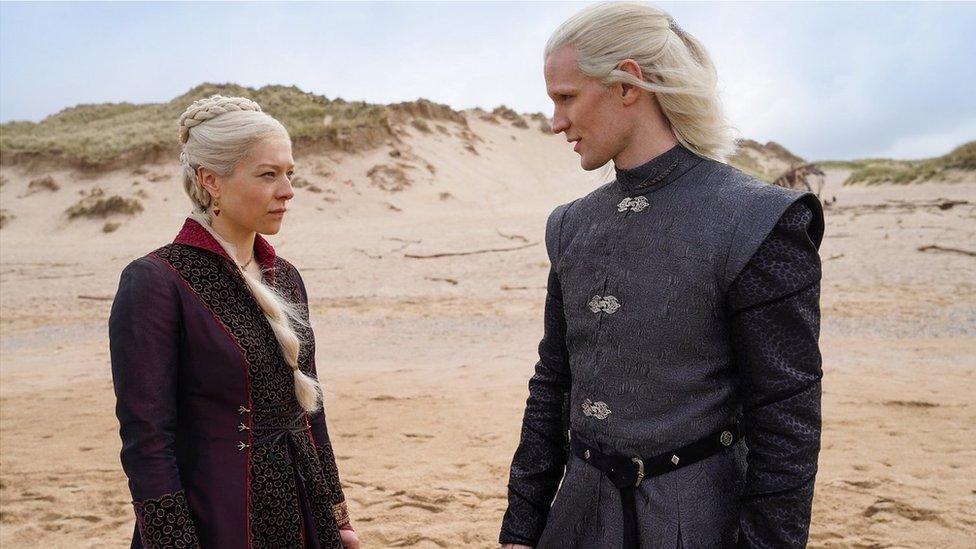
- Published6 December 2022
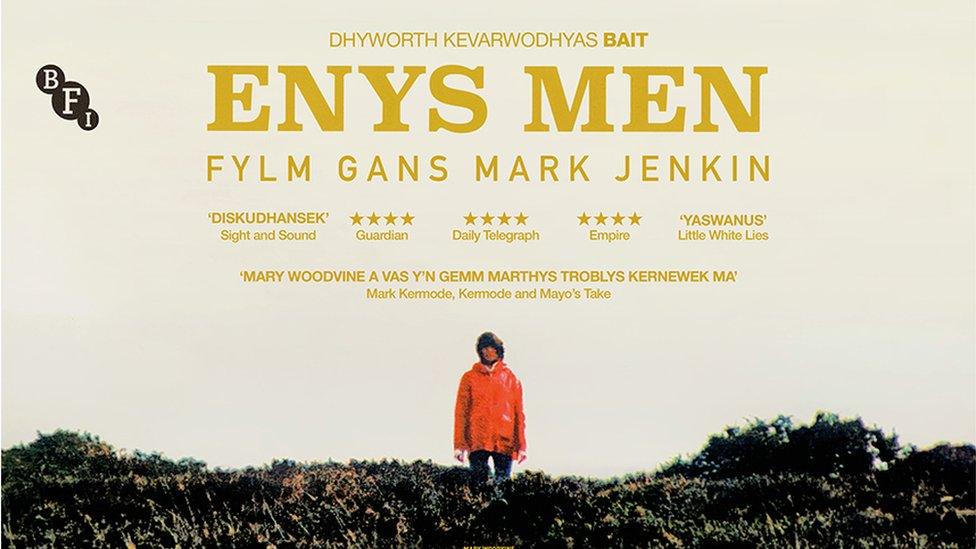
- Published16 January 2014
